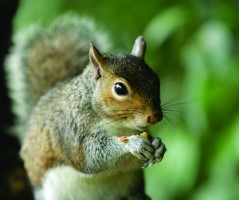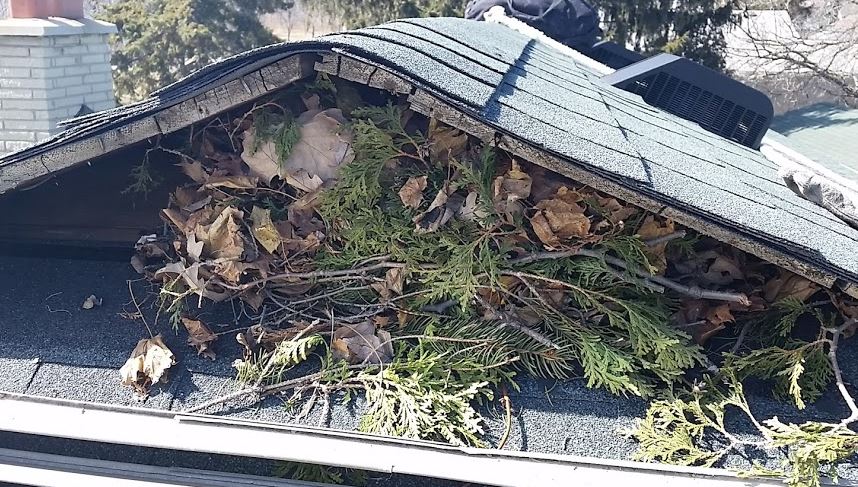Out of all the animals that Skedaddle Humane Wildlife Control deals with, squirrels are the ones that cause the most damage and frustration for homeowners.
Understanding squirrel habits is one of the keys to determining what kind of nuisance problem you’re dealing with. Once you’ve got that nailed down, you can begin to evaluate your options for getting them out of your walls, chimney or attic.
Squirrel habits vary depending on species, but the most common nuisance problems are caused by the Eastern Grey Squirrel. These little critters spend the day foraging for food, burying and digging up their treasures, and building nests to house their future offspring.
Squirrel Habit #1: Foraging For Food
Squirrels are primarily diurnal, gathering food during the day and resting at night. They are generally less active during the winter but do not hibernate.
They will eat vegetables, plants, and fruit, plus help themselves to the bird seed from your bird feeders. They will even chase birds away to protect this source of food. For sources of calcium, squirrels will eat deer antlers, bones and turtle shells. In autumn, fungi are another source of food. On average, squirrels eat about one pound of food per week. Squirrels mainly eat fungi, seeds, nuts and fruits, but they will also munch on eggs, small insects, caterpillars, small animals and even young snakes.
Cleaning up any fruit or nuts that have fallen into your yard and screening your bird feeders will reduce the attraction for squirrels.

Squirrel Habit #2: Burying and Digging up Food
Burying and digging up food is done to save food for later. Another aid in their feeding cycle is the olfactory abilities, which are incredible as they are able to smell the cached food with 30 cm of snow on top. This is a result of the caching behaviour, as the squirrel caches the food, the nut is cleaned and then rubbed on the face of the squirrel to attach a scent to the food, in turn allows the squirrel a greater probability of finding the cache during the winter. It’s not normally a big issue as these squirrels will dig a hole only large enough for an acorn and then cover up the treasure with dirt to hide it from others. Despite this habit being one of their less destructive behaviours, it is still a nuisance for those who have invested significant time, money, and energy into their landscaping and garden.
Squirrel Habit #3: Building Nests
Squirrels are very territorial and will fight to the death to defend their area. Building nests is the single most destructive and costly problem that they cause because they often build their “home” in your attic or walls. They damage the exterior to gain access, displace insulation, and leave a mess everywhere. They have also been known to cause fires by chewing on electrical wiring. Because their teeth are always growing, they gnaw on hard nuts, acorns or anything else that’s available. Their teeth may be small, but they are sharp and will gnaw through anything including metal and steel.
Dealing with these nuisance problems is made easier by understanding the habits of your neighborhood squirrels. There are many remedies available to deter theses critters, but if the thought of getting rid of them yourself is overwhelming, consider giving Skedaddle Humane Wildlife Control a call. Using top of the line humane prevention methods, we will exclude any squirrels from your home, seal up and entry holes so they can’t come back in, and clean up any damage they may have caused to insulation, wires, beams and more. Our work is guaranteed for life.

If you suspect your home or attic is playing host to furry house-guests, give Skedaddle a call at 1.888.592.0387.
We remove squirrels in from homes and business in: Kitchener-Waterloo, Cambridge, Guelph, London, Ottawa, Montreal and Halifax. Mississauga, Oakville, Burlington, Hamilton, Sudbury, St. Catharines, Brampton, and Niagara.



